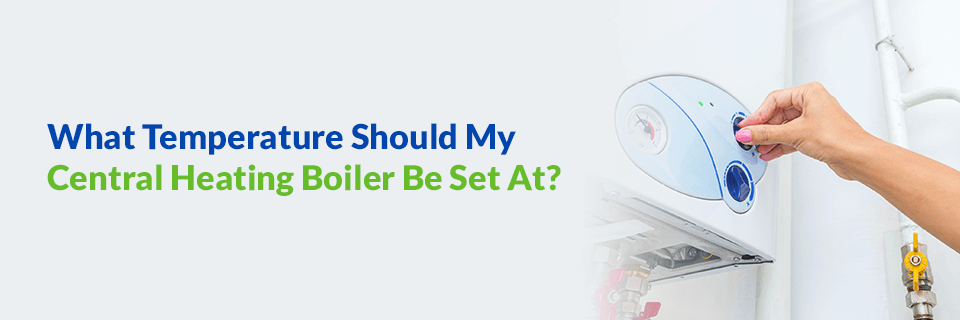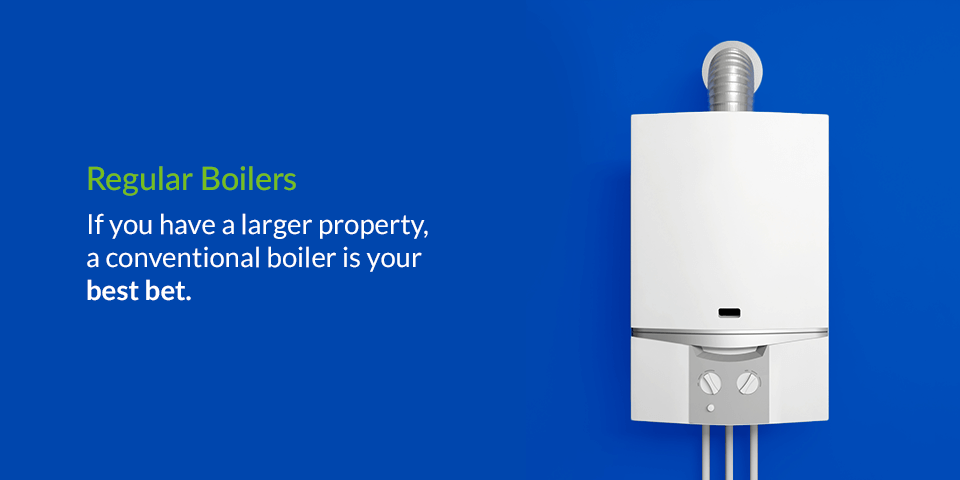
It can be challenging to determine the best temperature for your central heating boiler. With fluctuating exterior temperatures and varying hot water needs, the settings for your boiler may differ greatly from the next person. Knowing what type of central heating boiler you have in your home and typical temperature settings will help you determine the best temperature for your boiler or hot water cylinder. Learn what the recommendations are so you can heat your home efficiently.
- Common Types of Central Heating Boilers
- Central Heating Boiler Temperature Settings
- Tips for Energy Efficiency
- Energy Efficient Solutions With Smart Touch Energy
Common Types of Central Heating Boilers
It can be helpful to understand which type of central heating boiler you have in your house and how it works before attempting to adjust the boiler temperature.
Combi Boilers
Known formally as combination boilers, combi boilers have become a popular option for central heating because they provide heating and hot water from a single unit. A house's main water supply feeds cold water into the combi boiler. Then, the boiler burns the gas fuel to produce heat and uses a heat exchanger to transfer the heat to the water from the combustion chamber. Because combi boilers use gas or oil to heat the water, they can heat up quickly.
These boilers are much more compact than other boilers because they don't require space for a separate water tank. This feature makes them ideal for smaller properties. Despite having both the heating and hot water in one unit, combi boilers can't simultaneously direct hot water to both the tap and central heating. For example, if the central heating is on and someone in your household turns on a water outlet, the boiler will temporarily redirect the hot water to the water outlet while it's in use.
Regular Boilers
A regular boiler is also referred to as a heat-only or conventional boiler. These types of boilers consist of three components — the boiler, a separate cylinder to store hot water, and a separate tank to store cold water. The cold water tank is typically installed in a home's attic or loft space and uses gravity to fill the boiler. The boiler then heats the water and feeds it directly into the radiators of the central heating system and fills the hot water cylinder, so there's hot water on demand.
If you have a larger property, a conventional boiler is your best bet. This type of boiler is ideal for homes with multiple bathrooms and homes that have a low-pressure main water supply. Although regular boilers take up more space, their separate water tanks simultaneously supply hot water and heating.

System Boilers
Like regular boilers, system boilers can supply the radiators with heating water and hot water on demand via a hot water cylinder. These boilers only consist of the boiler and a hot water cylinder. The home's main water supply feeds water into the boiler, eliminating the need for a separate cold water tank.
These boilers are also ideal for large properties with high demands for hot water. They take up less space and offer more flexible installation options than regular boilers because many of the components are internal. Additionally, system boilers still require space for a hot water cylinder, and if the main supply has low water pressure, the flow rate throughout the house will reflect that.
Central Heating Boiler Temperature Settings
Put simply, there's no single temperature you should set your central heating boiler at. The temperature at which you set your boiler will vary depending on several variables, including the weather and personal preference. Ideally, you should adjust the boiler temperature to keep it within a specific temperature range to prevent the boiler from overheating.
Recommended Temperature Settings
The temperature settings for the central heating water and the hot water cylinder will differ from each other.
For the heating water, it's best to adjust your boiler's high/low temperature settings as the weather gets warmer and colder. While low boiler temperatures are more efficient and comfortable in the summer, higher boiler temperatures are more suitable for the winter. Typical low-temperature settings should be within the range of 120-160 degrees Fahrenheit and high-temperature settings should be within the 180-200 degree Fahrenheit range.
If you need the temperature to be warm, try to stay around 200 degrees at the highest. When the temperature starts rising over 212 degrees, your boiler will start overheating, which can result in the boiler leaking or bursting.
The temperature settings of your hot water cylinder will likely remain within the same temperature range year-round. The best temperature for your hot water cylinder is between 140-150 degrees Fahrenheit. For health and safety reasons, try to keep your boiler water temperature from getting too low.
A bacteria called Legionella can grow in freshwater with a temperature of 77-112 degrees Fahrenheit. This bacteria can put you at risk of contracting a form of pneumonia called Legionnaires' disease. The CDC recommends keeping your heating cylinder water temperature above 124 degrees at the very least.
Tips for Energy Efficiency
To heat your home efficiently and maximize energy efficiency, use your home's temperature controls. Using programmable thermostats and thermostats for individual rooms allows you to have more precise control over the temperatures of each room in your home. For example, your bedroom should be cooler than other rooms in your home to ensure a comfortable and healthy night of sleep.
Smart temperature controls will automatically adjust your home's temperature or allow you to access the controls from a mobile device. These features give you the ability to reduce heat consumption while you're away from home. Setting the boiler to fluctuate four to five degrees during different times of the day will help efficiently heat your home. Keeping the home cooler while you're away will also help with cost-effectiveness.
Energy Efficient Solutions With Smart Touch Energy
Being able to heat your home and have hot water is essential to making your home comfortable, especially during the winter months. Buying fuel to keep your central heating boiler running can be a hassle — but that changes with Smart Touch Energy. We provide consumers with the ability to order oil and gas online, so they can keep their homes warm without having to disrupt their daily lives. Our reliable team will deliver your order with three business days or sooner.
Thanks to our over 80 years of service, we're confident we can provide you with the resources you need to keep your home efficiently heated. Learn more about our services or contact a member of our team today.




